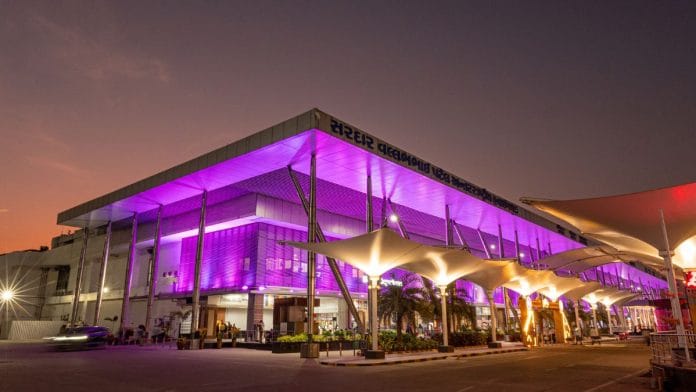New Delhi: Flight operations at Ahmedabad’s Sardar Vallabhbhai Patel International Airport have been suspended till further notice after an Air India Boeing 787-8 Dreamliner crashed immediately after take-off on Thursday afternoon. The airport, operated by the Adani Group, is India’s seventh busiest and is due for a massive makeover.
Terminal 2, which handles international flights, has been operational since 2010.
A new taxiway, which is 395 metres long was just operationalised in May 2024, to improve the airport’s efficiency. Work on a new parallel 3.5km taxiway is underway, which was projected to be completed by 2025.
The airport has reportedly been carrying out demolition drives near the airport to accommodate the needs.
The airport will also be opening a new integrated terminal by 2026, built at a cost of more than Rs 3,100 crore. This will see the airport double its capacity from eight million to 20 million by 2026.
In 2023-2024, the Ahmedabad airport saw a growth of 14 per cent in traffic at the airport.
The new terminal will have 55 check-in counters, 6 aerobridges and four bus boarding gates.
The crash
The Air India Boeing 787-8 Dreamliner (VT-ANB) from Ahmedabad to London Gatwick airport had 242 people on board, including two pilots and 10 cabin crew personnel. According to Air India, 169 passengers were Indian nationals, 53 British nationals, one Canadian and 7 Portuguese citizens. Shortly after take-off, the aircraft erupted into a ball of fire and crashed into a residential area abutting the airport.
According to Flight Radar, “the signal from the aircraft was lost at 08:08 UTC (13:38 local time) at 625 feet, less than a minute after take off”.
A DGCA statement says that the plane had made a MAYDAY call, but there was no response by ground staff to the airport.
One of the common reasons for engine failure is a bird strike, against which Ahmedabad Airport had elaborate prevention measures in place.
The airport spends Rs 20 lakh a month on firecrackers to scare away monkeys and birds. The airport has a slew of bird strike safety measures in place, which were enhanced in November 2024. These include community management, acoustics, and wildlife relocation.






